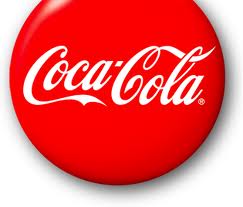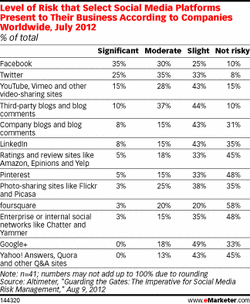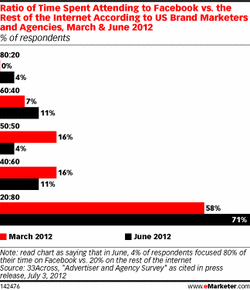Christian Slagter posted an interview yours truly on his website. Find out some interesting insights and a remarkable piece of advice.
here's the interview (in Dutch)
here's the interview (in Dutch)
|
Christian Slagter posted an interview yours truly on his website. Find out some interesting insights and a remarkable piece of advice.
here's the interview (in Dutch)  Finally. Coca-Cola seems to be committing itself to content marketing, even stating that Coca-Cola can no longer rely on being 30-Second-TV-Centric. If they can really execute on this (remember, culture has strategy for breakfast), it's truly revolutional. Not just for Coca-Cola, but for the entire advertising world. So take 20 minutes or so to view the two videos below and see for yourself what the world's most prominent advertiser has to say on content marketing..  It's not really the percentages in this graph that intrigue me. Is more the explicitness with which businesses state the risk they perceive in using social media. Yes, it's risky to talk to people with a commercial objective. Yes, it's risky to be commercially present on locations where people may form an opinion on you, your brand and your business. Positive or negative. But what strikes me is that I never saw (or see!) these graphs regarding traditional advertising and marketing communication. How risky is it to put a half naked person in an ad in a magazine? Or a beer brand in a stadium full of football hooligans? Risky business. Feels a bit like a pleonasm, doesn't it?  It took me some time to figure out what this graph was saying, but it's this: marketeers are shifting time spent away from Facebook to a healthier "rest of the web distribution". For example: in March 2012, 58% of marketeers said they spent 20% of their time on Facebook and 80% of their time on other platforms. In June, 71% of marketers said they spent 80% of their time on other platforms. This makes all the sense in the world to me. I always like to compare the online social world with the offline social world. Do people meet in only one place? No. Should you therefore focus marketing efforts on one place? Uh, no! A golden oldy law in cross-media marketing is that messages are reinforced when shown in different channels, formats and contexts. Diversity, however impractical from an operational point of view, pays off in terms of higher effectiveness. And with new, engaging platforms such as Pinterest and Tumblr getting more traction, the alternatives keep diversifying the social landscape. But there's more: a stude by Advertising Age and Citi Group found that almost 38% of marketers are disappointed by ROI on marketing activities on Facebook, when compared to other platforms such as Yahoo (yes, Yahoo!) and Google. Is this evidence that interest drives higher returns than social? That search is more effective than discovery? My gutt feeling says yes.  After months of hard work we're very proud to show off CheckZis. CheckZis is where you go to when you need to manage a non-everyday project like buying a house or starting a business. CheckZis helps you with lists that are created by me and you. We've launched CheckZis in beta in May. The basic goal was to test if the platform would be stable in de live environment and to get feedback from early users. It's been very helpful! Our current product development roadmap has defined 60+ projects to improve CheckZis. First up: the English version and the ability to copy checkpoints from one list to the next. Google's introducing social elements drawn from Google+ to its search results. Great stuff. Really. One problem: people use Facebook, not Google+. And this seems to be the wrong way around anyhow: adding social to search. In my opinion, it should be adding search to social. look at it from a real world perspective: if I want to find a good plumber, I don't start by picking up the Yellow Pages. I start by asking a friend who had a plumbing problem a few months ago. Google will probably not pursue a partnership with Facebook, since it has already psychologically taken the path of Google+. And we all know what happens to ego babies (which are even worse than love babies). So, the next question would be: what will be the search engine of tomorrow? Bing perhaps. With its close ties to Facebook, Microsoft might be able to pull this one off. Or Facebook, saying: Screw everybody! We van do this by ourselves. Especially after getting our hands on a couple of billion dollars with our 2012 IPO. |